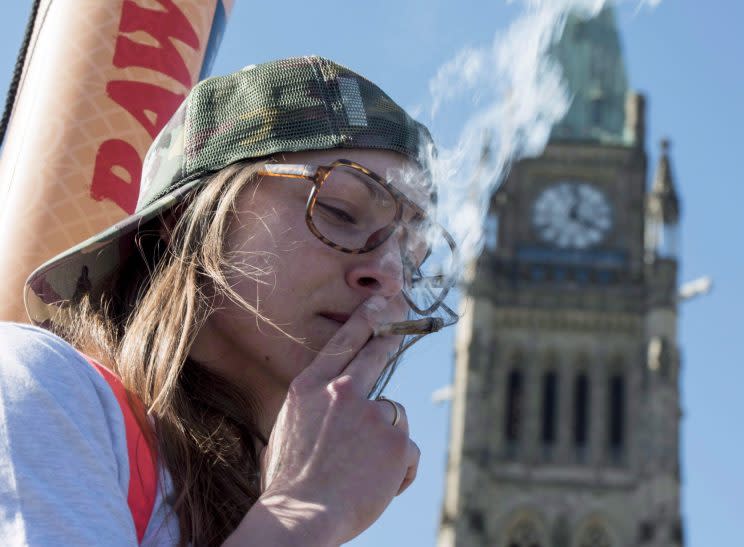Legalized marijuana could funnel $675M annually into federal, provincial coffers

A new report indicates that if marijuana is taxed effectively it could discourage use of the black market and add hundreds of millions of dollars to federal and provincial coffers each year.
In an open letter addressed to Federal Justice Minister Bill Blair earlier this week, Rosalie Wyonch, a policy analyst at the C.D. Howe Institute, wrote that the government must carefully navigate the line between public health concerns and revenue generation.
Because of the presence of a “prolific black market,” Wyonch said the federal government is in a position to choose either a “regulated market or large revenue generation, but not both.”
“If the government taxes marijuana heavily, it will ensure the continuation of the black market and will be undermining its efforts to control the substance,” said Wyonch.
“If the tax rates are very low, however, then governments will generate little revenue and consumption of marijuana may increase due to low prices and a newly accessible legal supply.”
Wyonch said the best option would be to keep taxes low enough in order to discourage users from buying from the black market, which would in turn would allow for greater oversight.
In the note, Wyonch also indicated that the cost of marijuana upon legalization must be competitive with the black market.
If consumers are forced to pay just a single dollar more than they would have to if they acquired marijuana illegally, it could result in about 35 per cent of the market remaining unregulated.
“This gives all the more reason for the government to be cautious about levels and type of taxation,” said Wyonch.
Wyonch noted that if marijuana is priced at $9 per gram, which is in line with current street prices, and only sales taxes were applied, Canada could achieve a legitimate market of 90 per cent.
This would also generate an estimated $675 million a year in tax dollars for federal and provincial governments.
If the government instead aimed to bring in $1 billion in revenue, only about half of the market would become regulated.
Wyonch told The Canadian Press that while these initial revenues may seem modest, there is the potential for greater windfalls down the road as the market matures and companies become more efficient.
Canada’s PBO has estimated that 4.6 million Canadians will consume more than 655 metric tons of marijuana next year.
Previous estimates have predicted even rosier outcomes for federal and provincial governments.
A report from CIBC World Markets last January estimated that legalization could fetch as much as $5 billion a year in tax revenues.
Last October, Deloitte projected that the entire market could be worth more than $22.6 billion, and eclipse the sales of beer, wine and spirits in Canada.
Prime Minister Justin Trudeau has said that any revenue generated from legal pot sales will be put towards addiction treatment, mental health support and education programs.
Last month, Finance Minister Bill Morneau said the feds hadn’t reached a “conclusion” in terms of developing a plan for taxation and several other issues related to legalization.
However, the answers to these questions may come on Thursday, when Canada’s marijuana legislation is expected to be rolled out in the House of Commons.
With files from The Canadian Press

 Yahoo Finance
Yahoo Finance 
